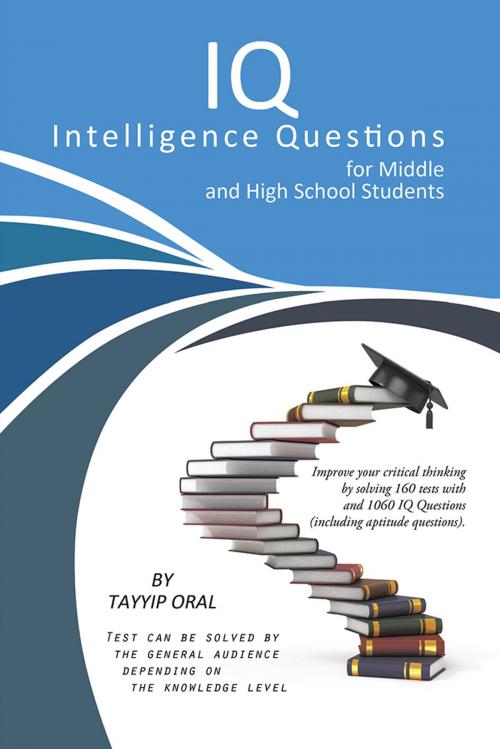Iq Intelligence Questions for Middle and High School Students
Mathematic Logic
Nonfiction, Reference & Language, Education & Teaching, Teaching, Teaching Methods| Author: | Tayyip Oral | ISBN: | 9781496931887 |
| Publisher: | AuthorHouse | Publication: | September 9, 2014 |
| Imprint: | AuthorHouse | Language: | English |
| Author: | Tayyip Oral |
| ISBN: | 9781496931887 |
| Publisher: | AuthorHouse |
| Publication: | September 9, 2014 |
| Imprint: | AuthorHouse |
| Language: | English |
IQIntelligence Question This IQ book has been prepared for secondary school and high school students, with the aim of developing the problem solving skills of the mind. These tests result in the development of learning skills, making deductions from what they have learnt, applying these to new situations, analytical thinking and finding solutions. General ability tests provide information on the degree of benefit which can be derived by a person from education. These tests cause the potential of students with superior abilities to stand out and for them to recognize the contributions they can make to themselves and the community. Some parents and guardians are able to learn the IQ and intelligence capabilities of their children through these tests. The book generally consists of questions on numbers, processes, tables, platforms, and the relationships of these with each other. The aim here is to attempt to form a relationship between verbal questions and numbers, without frightening the students. The objective is to create a love of mathematics by setting off from verbal questions. The second part of the book contains more questions in particular on numbers, processes, and the relationships between numbers and shapes. The aim here is to use the basic mathematical processes to develop the capability of students to think quickly. IQ tests are tests of tendency and talent which measure the intellectual strength of individuals. They are comprised of different tests, including verbal, visual and numerical. These tests measure the abilities of students to retain information within their memory in the short term, and their problem solving skills. Due to these tests we are able to learn the capabilities of students in the areas of: thinking quickly problem solving deductive reasoning ability to carry out fast and faultless procedures with regard to numbers ability to notice details within a short time ability to detect inconsistencies ability to carry out procedures using numbers ability to compare shapes and find matching ones ability to work with numeric concepts
IQIntelligence Question This IQ book has been prepared for secondary school and high school students, with the aim of developing the problem solving skills of the mind. These tests result in the development of learning skills, making deductions from what they have learnt, applying these to new situations, analytical thinking and finding solutions. General ability tests provide information on the degree of benefit which can be derived by a person from education. These tests cause the potential of students with superior abilities to stand out and for them to recognize the contributions they can make to themselves and the community. Some parents and guardians are able to learn the IQ and intelligence capabilities of their children through these tests. The book generally consists of questions on numbers, processes, tables, platforms, and the relationships of these with each other. The aim here is to attempt to form a relationship between verbal questions and numbers, without frightening the students. The objective is to create a love of mathematics by setting off from verbal questions. The second part of the book contains more questions in particular on numbers, processes, and the relationships between numbers and shapes. The aim here is to use the basic mathematical processes to develop the capability of students to think quickly. IQ tests are tests of tendency and talent which measure the intellectual strength of individuals. They are comprised of different tests, including verbal, visual and numerical. These tests measure the abilities of students to retain information within their memory in the short term, and their problem solving skills. Due to these tests we are able to learn the capabilities of students in the areas of: thinking quickly problem solving deductive reasoning ability to carry out fast and faultless procedures with regard to numbers ability to notice details within a short time ability to detect inconsistencies ability to carry out procedures using numbers ability to compare shapes and find matching ones ability to work with numeric concepts















